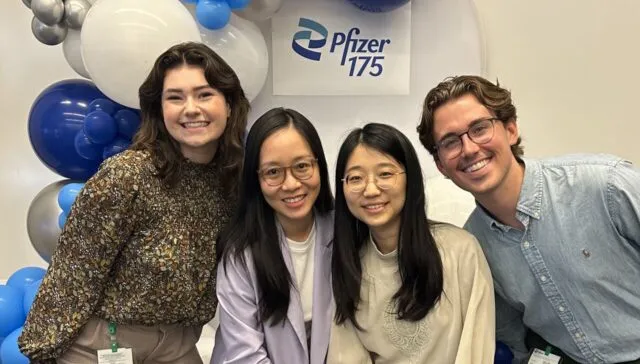Climate and health: a community perspective

When looking at the recent uptick in heatwaves, wildfires, hurricanes, and other extreme weather events, it’s apparent that climate change represents a clear and present danger. Communities everywhere need to better prepare for the challenges we’re experiencing today, but the right ways to do that might not always be clear.
In March 2022, researchers, experts, and public health officials came together for a webinar hosted by Boston University School of Public Health, titled “Climate and Health: What can we do today?”. The event was designed to bolster important public health conversations by assembling experts to discuss strategies for preparing and protecting communities from the extreme weather events experienced today.
Sandro Galea, a physician, epidemiologist, and Dean of Boston University School of Public Health, stated, “Like a pandemic, climate change represents a slow-burning challenge we did not address as early as we should have…All of this has implications for health. Creating a healthier future means mitigating the near-term effects of climate change while working to prevent the worst of this threat.”
The government perspective
In the keynote speech, John Balbus, the interim director of the Office of Climate Change and Health Equity for the US Department of Health and Human Services, talked about the work he does to address these problems. This includes the ways we can work to protect all populations, especially those most vulnerable, from the health impacts of climate change. The conversation was moderated by Greg Wellenius, Professor of Environmental Health and Director of the Center for Climate and Health at BUSPH.
Watch the video here:
Climate action for equitable, healthy, and climate-resilient communities
Bringing in climate and public health experts and activists, the event featured a panel discussion with presentations from:
- Roseann Bongiovanni (CAS’99, SPH’01), Executive Director at GreenRoots
- Sharon Harlan, Professor and Department Chair at Northeastern University
- Kathy Baughman McLeod, Director, Adrienne Arsht-Rockefeller Foundation Resilience Center: Senior Vice President, Atlantic Council
- Marie S. O’Neill, Professor, Department of Epidemiology, Environmental Health Sciences, University of Michigan
- Amruta Nori-Sarma, Assistant Professor of Environmental Health at BUSPH, who served as the moderator.
The group focused on topics such as the distribution of federal resources, prioritizing threats, and other methods to combat climate change. They also recommended books and podcasts to learn more about environmental justice and diesel alternatives.
View the discussion here:
The academic research perspective
In the final keynote speech, moderator Patrick L. Kinney, Beverly Brown Professor of Urban Health and Professor of Environmental Health at BUSPH, and Francesca Dominici, Clarence James Gamble Professor of Biostatistics, Population and Data Science Co-Director of the Data Science Initiative, Harvard T.H. Chan School of Public Health, discussed the ways academics can work to address these issues. The two answered questions like:
- How does large-scale analysis really contribute to climate research?
- How to reduce CO2 levels from a policy point of view?
- Are there databases or consortiums for Global monitoring data?
- How do you reconcile the different kinds of data?
Watch the keynote speaker, Francesca Dominici – The Academic Research Perspective here:
Work with idea hub to help solve today’s most pressing issues
At idea hub, we work to bring organizations and researchers together to help address and find innovative solutions for climate and health challenges. Whether through collaboration opportunities or events, there are multiple avenues to explore.




